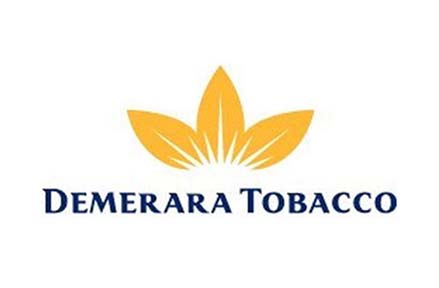The Demerara Tobacco Company (Demtoco) says compliance with new public health regulations have already led it to hike the prices of its products even as it awaits the impact of the new tax regime for tobacco.
As of January 1st, 2019, a combination of ad valorem and a specific Excise Tax of $2,500 per 1,000 sticks, together with Customs Duty of 100 % and VAT of 14%, is being applied to tobacco products in an attempt to reduce smuggling and simplify administration. Previously, the products, which include cigars, cheroots, cigarillos and cigarettes, “homogenized” or “reconstituted” tobacco, tobacco extract and essences, attracted an Excise Tax of 100% the invoiced value of products.
Minister of Finance Winston Jordan has said the new regime for taxing tobacco products will net government an increase of $50 million in revenue from the industry.
According to Demtoco Managing Director Christopher Brown, it is expected that the new tax regime will have an impact on the company’s bottom line, though it is still unclear what that impact will be.
“They have introduced the regime as a measure to deal with under invoicing and we welcome the measure on the grounds of them addressing illicit trade but we expect an increased cost to the business,” he explained, while stressing that the specific costs will not be known until market reaction to other changes are reflected in import volume.
Responding to an inquiry from Sunday Stabroek, Brown stated that as of January 2nd, the company has effected a price increase across two of its three brands in response to costs incurred from compliance efforts.
“Dunhill, which is our premium offering, and Bristol, have all seen a price increase but there is no increase on Pall Mall, which is our value for money or low cost offering. This increase is not because of the new tariff but because of increase cost of operating,” he stressed.
Significant cost
According to Brown, the passage of the Tobacco Act has changed in an immense way the regulatory environment as it impacts where and how people consume the product, where and how the products are sold, how they are packaged, marketed and distributed.
“The regulations are one of the strongest in the Caribbean and it has required significant investment and cost on the part of the company just to be compliant,” he said, while noting that the company has had to change a lot of merchandising and equipment right across the country at significant costs.
Additionally, the company has had a series of training for outlet owners as to the dos and don’ts of the new regulatory environment since “those who sell need to understand their obligations under the law and have to be protected so they are not caught violating. “
Major investments have included the purchase of stamping equipment so that a recently implemented excise stamp can be affixed to the packages.
“It cost us hundreds of thousands of US dollars to acquire equipment and machinery as no other country in the English speaking Caribbean has tax stamp and our factory in Trinidad did not have the capabilities to affix the stamp,” he said as he stressed that those two elements, the stamp and public educations campaign, have cost a lot.
As of January 1st, 2019, the company has also removed from its shelves the small packs, or packs of 10, the sale of which is no longer allowed under the legislation.
“Our initial assessment shows this [removal of small packs] has gone well. There is little or no residual packs of 10s in the market,” he noted.
Despite the impact on the cost of doing business, Brown noted that his company is pleased with efforts by government to combat illicit trade of tobacco products.
“Illicit trade has been increasing with current estimates showing it accounts for 15% of total consumption. Some importers practice under invoicing and pay less taxes while others smuggle and pay no taxes. This is a significant concern of ours and it is why we welcome both the tax stamp and the new tax regime. I want to congratulate GRA for their efforts to address our concerns,” he said.







